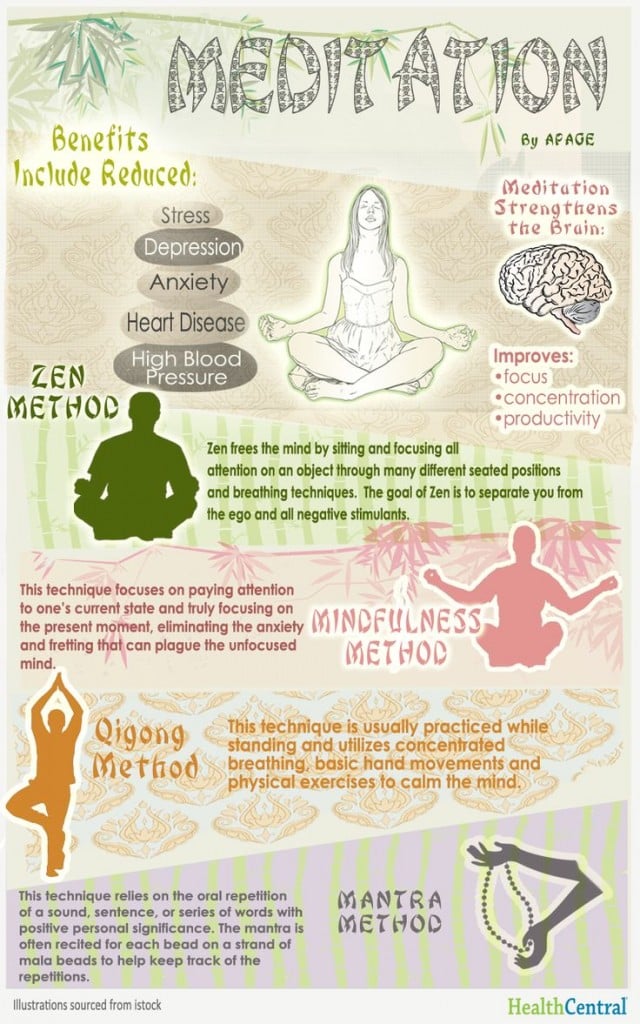I’ve always romanticized meditation and longed to be grounded and spiritual. For most of my life, my monkey mind often controlled me with flitting thoughts that would take hold, often triggering anxiety or causing me to spiral into worry or shame. “Don’t believe everything you think” became a comforting mantra for me, as I’d remind myself that the brain fires constantly, and random, sometimes unpleasant, thoughts are often side effects.
As a highly sensitive person prone to anxiety, depression, and addictive behaviors, I have always been attracted to meditation. I’d started countless meditation practices with new resolve throughout the past 10 years– and it never stuck. I have a hard time sitting still. I can’t quiet my racing mind. What should I be meditating about? Did I turn the oven off? OH — I have to remember to email that person…..
And so on. And then I’d tell myself meditation wasn’t for me. I’m movement focused; I can’t sit still. Some people are cut out for it, but not me.
I was wrong.
What I’ve Learned about Meditation
It’s a practice. That’s what I’ve learned about meditation. We expect that because we SHOULD have control of our mind and thoughts that we should be able to take to the mat and sit quietly for 20 minutes and empty our minds just like that. When we discover just how hard it is to quiet the chatter, we get frustrated and give up. Or at least that was my pattern. What I learned was the mind has to be trained, just like any other part of your body learning any new skill. You don’t expect to jump from the couch to running 5 miles over night, do you? Or picking up a new skill and mastering it right away? Meditation is no different: it’s a practice and a skill that takes time and patience to learn.
I started my most recent meditation practice about 4 months ago, and it’s sticking this time. Why? Because I stuck with it and understood this time around that it’s a skill one develops. It’s discipline. It’s practice. Like dragging yourself to the gym when you don’t particularly want to go, on the days I wanted to do anything but meditate (and found a million excuses not to do so), I did it anyway (usually). Even if for 5 minutes.
And you know what I noticed? I looked forward to it. I saw results. Because, like a puppy, if you don’t train your mind, it will shit everywhere. This was certainly true for me– I was tired of my frenetic, racing thoughts running the show. I was tired of feeling powerless or that ‘that was just who I was.’ And while some of that was certainly brain chemistry imbalance for which I sought treatment, learning to train my mind has been one of my most valuable assets.
Does this sound familiar? You have a fear: maybe it’s public speaking, driving on the freeway, flying in a plane, whatever. When confronted with said fear, your mind spirals out of control, and suddenly the fear is all consuming, all encompassing. Maybe physical symptoms result: shaking, hypoglycemia, racing heart, sweating. Maybe you’re depressed, or you have a tendency toward negative thinking, and your thoughts turn towards the negative, self doubt. Or maybe you’re a binge drinker, who escapes in several glasses (or a bottle) of nightly wine to turn off the chatter in your head. You are the perfect candidate for meditation.
As I’ve mentioned before, there may be physical reasons you are suffering from depression and anxiety, but a meditation practice is so valuable for shutting down negative thoughts and self-talk before your mind takes over and starts running the show. How? Your practice travels with you beyond the mat. When I find myself getting worked up or anxious, I have a few simple breathing exercises I use to recenter myself. Or I know how to calm and center myself and let thoughts pass by without taking hold. It’s so empowering.
Yes, you may suck at it at first. It took me a while to even quiet my mind and focus when I would sit down to begin. It was amazing to observe just how frenetic my mind was– and how that lead to my flighty, hot headed behavior. But, as I’ve said before: It’s a practice. You will improve. Stick with it. Even if you don’t want to do it, just take 5 minutes out of your day. It doesn’t have to take hours.
There are countless ways to build your meditation practice. I started with just sitting for a few minutes to quiet and empty my mind to calm and center myself (mindfulness meditation). I’ve since found a great practice in Kundalini meditation. You may find it easy to begin with guided meditations, music, or mantra meditation. Make a quiet place for yourself–your altar or meditation corner– that will become the place you visit daily to meditate. I made an altar upon which I placed candles and items that were meaningful to me. But really, all you need to begin is a quiet place and your breath.
What I’ve learned about meditation? It’s a practice, one that is always growing and developing. It’s training your mind. It’s a practice you can take anywhere and access at any time. Once you start, it becomes a part of your life–one you anticipate daily, one you look forward to expanding and developing. Meditation can improve your health: It may reduce anxiety and high blood pressure and help you manage chronic illness and insomnia. It can help you build skills to manage stress, solve problems, be present, reduce negative emotions, and improve relationships. It can help you overcome addictions and self destructive behavior. It can be life-changing.
Resources
May Cause Miracles
Deepak Chopra Meditation
Benefits of Meditation
My Simple Morning Practice
My pinterest meditation board

Mary Vance is a Certified Nutrition Consultant and author specializing in digestive health. She combines a science-based approach with natural therapies to rebalance the body. In addition to her 1:1 coaching, she offers courses to help you heal your gut and improve your health. Mary lives in San Francisco and Lake Tahoe in Northern California. Read more about her coaching practice here and her background here.







